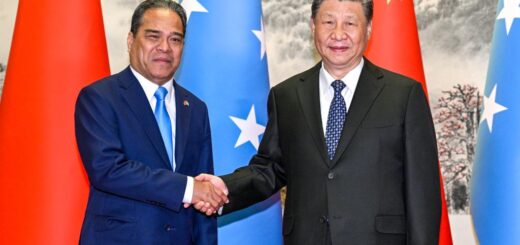CONSTITUTIONAL COURT Constitution of Zambia (Amendment) No. 2 of 2016
Notice: Undefined index: catFilterList in /home/zambi/public_html/wp-content/plugins/wp-likes/api.php on line 243

Simon Kabanda
One novelty in the 2016 Amended Constitution is the establishment of the Constitutional Court.
What is the Constitutional Court?
What is the rationale behind the establishment of the Constitutional Court?
What value has it added to the Judicial system in Zambia?
Wikipedia describes a Constitutional Court as “a high court that deals primarily with constitutional law. Its main authority is to rule on whether laws that are challenged are in fact unconstitutional, i.e., whether they conflict with constitutionally established rights and freedoms”.
Where did the idea of establishing the Constitutional Court come from?
Term of Reference # 6 of the Mung’omba Constitution Review Commission (CRC, 2003-2005) stated this:
“Recommend provisions to ensure the competence, impartiality and independence of the Judiciary, and access of the public to justice”.
As the Mung’omba CRC went to gather submissions in the 150 Constituencies of Zambia, “a large number of petitioners proposed that a constitutional court should be established to deal with constitutional
matters, violation of guaranteed human rights, and election petitions … They argued that the Judiciary lacks expertise and specialisation in
constitutional matters. They also lamented the delays in determining cases involving constitutional matters, including human rights and election petitions. In addition, petitioners argued that a constitutional
court would enhance the checks and balances among the three organs of the State” (CRC report, 29 December 2005, p. 460).
This was not the first time that the people of Zambia expressed the need
to have a Constitutional Court. Petitioners to the Mvunga CRC (1989-1990) and the Mwanakatwe CRC (1993-1995) also expressed the desire for the establishment of a Constitution Court in Zambia.
“One of the outstanding submissions received by both the Mvunga and Mwanakatwe Commissions was a call for the establishment of a constitutional court with jurisdiction in all constitutional matters. Some petitioners felt that the Court should also have final jurisdiction on all human rights issues. The main reasons advanced were to encourage specialisation and expertise and reduce the delays experienced in the administration of justice” (p. 461)
The Technical Committee on Drafting the Zambian Constitution (TCDZC) was faithful to the desires of the people of Zambia on this issue, and hence provided for the Constitutional Court in the Draft Constitution of 2013, on which the 2016 Amended Constitution is anchored.
The Constitution of Zambia (Amendment) No. 2 of 2016 therefore provides this:
ESTABLISHMENT AND COMPOSITION OF CONSTITUTIONAL COURT
Article 127
There is established the Constitutional Court which consists of—
(a) the President of the Constitutional Court;
(b) the Deputy President of the Constitutional Court; and
(c) eleven other judges or a higher number of judges, as prescribed.
JURISDICTION OF CONSTITUTIONAL COURT
Article 128
(1) Subject to Article 28, the Constitutional Court has original and final jurisdiction to hear—
(a) a matter relating to the interpretation of this Constitution;
(b) a matter relating to a violation or contravention of this Constitution;
(c) a matter relating to the President, Vice-President or an election of a President;
(d) appeals relating to election of Members of Parliament and
councillors; and
(e) whether or not a matter falls within the jurisdiction of the Constitutional Court.
(2) Subject to Article 28 (2), where a question relating to this Constitution arises in a court, the person presiding in that court shall refer the question to the Constitutional Court.
(3) Subject to Article 28, a person who alleges that—
(a) an Act of Parliament or statutory instrument;
(b) an action, measure or decision taken under law; or
(c) an act, omission, measure or decision by a person or an authority;
contravenes this Constitution, may petition the Constitutional Court for redress.
(4) A decision of the Constitutional Court is not appealable to the Supreme Court.
I wish to conclude by stating that the establishment of the Constitutional Court
has enhanced the judicial system in Zambia.
One of its advantages is quick disposal of matters such as election petitions.
Simon Kabanda
Whatsapp # +260-968-664272
4 April 2017
Simon Kabanda is an Expert in Constitution Making and was a member of the Technical Committee on Drafting the Zambian Constitution (2011-2013)www.rainbownewszambia.com





















